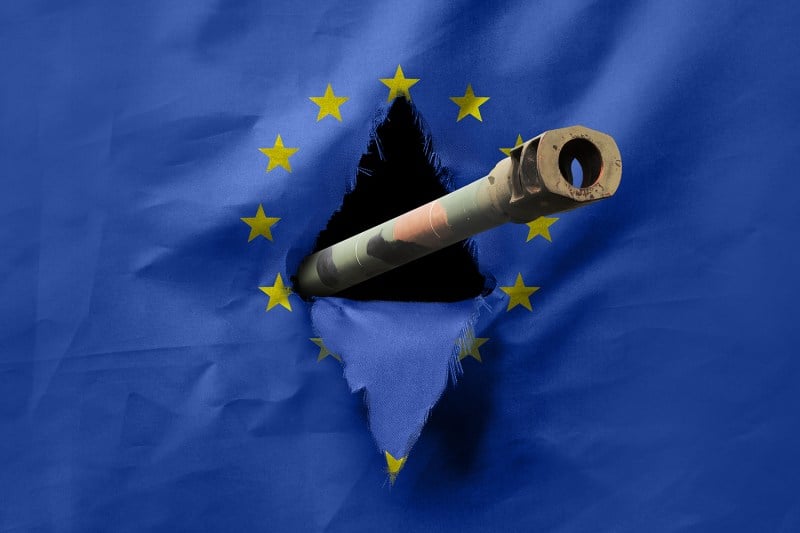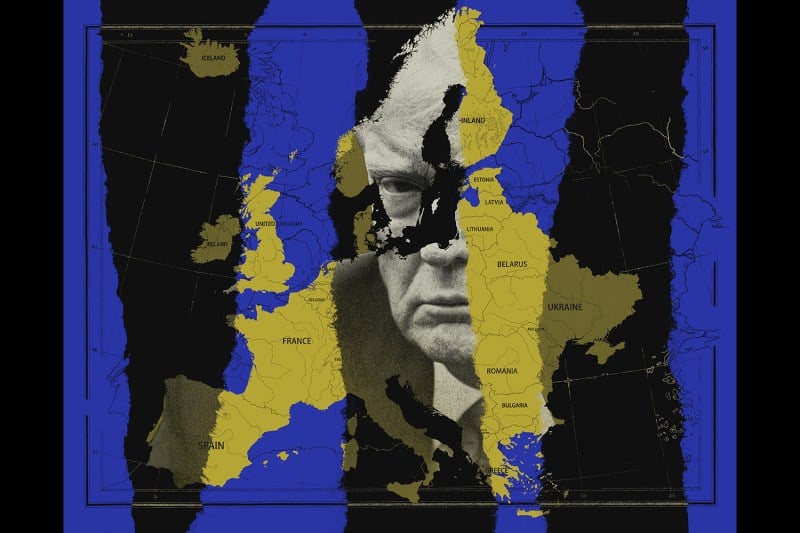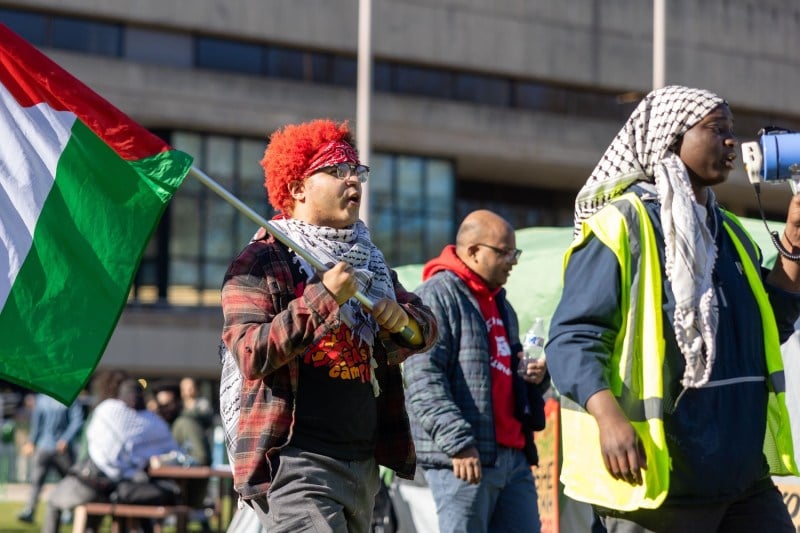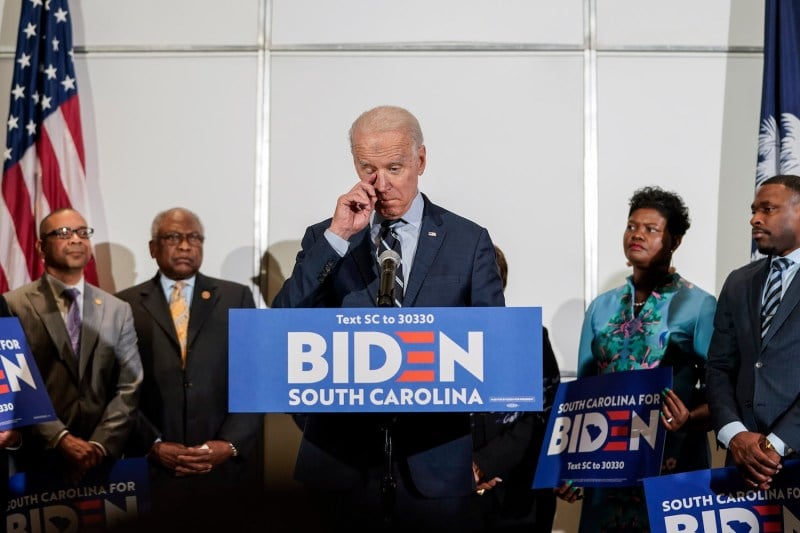Will Democrats Take Black Voters Seriously on Foreign Policy?
Vice President Kamala Harris and the NAACP have gone further than Biden on Gaza, because they’re aware of simmering discontent among a crucial constituency.
The National Association for the Advancement of Colored People (NAACP) has belatedly decided to weigh in on the war in Gaza. The civil rights organization’s request that the United States halt all weapons deliveries to Israel and that Hamas release the hostages underscores the uncomfortable fact that there is an existential crisis in the Black electorate. It comes at a time when Democrats are wrestling with the question of whether President Joe Biden should withdraw from the 2024 presidential race.
The National Association for the Advancement of Colored People (NAACP) has belatedly decided to weigh in on the war in Gaza. The civil rights organization’s request that the United States halt all weapons deliveries to Israel and that Hamas release the hostages underscores the uncomfortable fact that there is an existential crisis in the Black electorate. It comes at a time when Democrats are wrestling with the question of whether President Joe Biden should withdraw from the 2024 presidential race.
Biden’s June 27 debate performance deeply unsettled Democrats, with several party leaders calling for his withdrawal from the race. Even though a CBS/YouGov poll following the debate revealed that Black Americans felt more strongly than other groups that Biden should remain the Democratic Party’s presidential nominee (58 percent)—compared to Whites (32 percent), and Hispanics (34 percent)—42 percent of Black Americans surveyed still believed Biden should step aside.
This suggests that there is a unique tension present in the president’s most faithful constituency. While the Black community has more faith in Biden compared to other racial groups, there is significant discontent and a clamor for change in leadership that was perhaps exacerbated by the debate.
But there are other factors at play—beyond the president’s poor debate performance.
Weakening support for the Democratic Party among Black voters is in part driven by domestic concerns and further exacerbated by the Biden administration’s foreign policy decisions that have impacted the Black community and facilitated human rights violations in Gaza. The decision by the nation’s leading civil rights organization, which has been largely absent from foreign policy debates since its apotheosis in the mid 20th century, to weigh in on this issue underscores the reality that the Black community—the Democratic party’s most reliable demographic—may not carry Biden to victory as they did in 2020.
To be sure, it was the NAACP’s constituency that compelled the organization to endorse such a progressive diplomatic stance. Political ferment first appeared in the months following Hamas’ Oct. 7 attack on Israel which resulted in the deaths of more than 1,200 people, and Israel’s invasion of Gaza that has thus far taken the lives of roughly 38,000 Palestinians.
In January, 1,000 Black faith leaders called for a cease-fire, and African Methodist Episcopal church leaders called for an end of U.S. aid to Israel. Such sentiments became more pronounced when, in February 2024, African American news outlets decried the death of three Black servicemembers at the hands of Iranian-backed militias—the first U.S. troops to have been killed by enemy fire in the Middle East since the war in Gaza began.
Polling conducted in March by the Carnegie Endowment for International Peace revealed that support for a ceasefire (68 percent) and conditioning American military aid to Israel to ensure that Israel is using those weapons for legitimate self-defense purposes (59 percent) is a popular stance among Black Americans.
Although the same poll revealed that there was a low likelihood of Biden’s Gaza policy eroding his support among rock-solid Democrats in the Black community, it did reveal that his policy was hurting his chances with Black independents and young voters, in particular. Young Black voters and independents are a crucial demographic that the president needs to court in a close race.
It was not long after the series of events that the Biden administration recalibrated its Gaza policy. In March, Vice President Kamala Harris spoke at the Edmund Pettus Bridge in Selma, Alabama—hallowed ground in the Black American fight for freedom and enfranchisement. As she reminded voters what a resurgent right wing would mean for basic civil rights guarantees she also commented on the war in Gaza stating, “given the immense scale of suffering in Gaza, there must be an immediate ceasefire for at least the next six weeks.”
The decision by Harris to adopt a more progressive position than Biden—and to announce it in Selma—underscores her acknowledgement that for many Black voters, domestic civil rights cannot be wholly divorced from international human rights and social justice.
Harris’s strong statement did not stop young Black voters from continuing their critique of the Biden-Harris administration’s Middle East policy. For instance, in May, Xavier University, a historically Black college in Louisiana, decided to withdraw its offer to have Linda Thomas-Greenfield, U.S. ambassador to the United Nations, serve as its commencement speaker. Students cited her record of voting against the first three cease-fire resolutions presented to the U.N. Security Council, although a U.S.-led resolution for a Gaza ceasefire was recently passed in June.
At Morehouse College in Atlanta, Georgia—a state which is projected to play a key role in the presidential election and the home state of the three servicemembers killed in the drone attack in January—Biden’s commencement speech was also met with significant consternation from faculty, students, and alumni.
In the weeks before the President’s speech, Morehouse alumni circulated a letter arguing that the present moment was analogous to the anti-war activism of the school’s most celebrated graduate, Dr. Martin Luther King Jr., during the late 1960s. One sentence read “inviting President Biden to campus, the college affirms a cruel standard that complicity in genocide merits no sanction from the institution that produced one of the towering advocates for non-violence” and that the young men of Morehouse were being “used as a step stool” for the president’s “political ambitions.”
The president’s address occurred without major incident, with several graduates turning their backs to Biden as he spoke, some affixing Palestinian flags to their graduation caps, and one faculty member standing with their back turned to the president clenching a fist in the air. While Biden did in fact embrace a cease-fire during his commencement speech on May 19, there was no attempt at publicly explaining the continued flow of military aid to the well-armed Israeli military—a policy that was at the root of student and faculty discontent.
It was against this political backdrop that Biden entered the presidential debate. Predictably, the centrality of the Black vote to this year’s presidential election was on full display when at the one-hour mark, Biden was asked what he would say to Black voters accusing him of not delivering on his promises to them. Naturally, Biden ran down his domestic wins with the community—a tactic he has employed when making his circuit around Black communities in recent months. By contrast, Donald Trump, who remains largely unpopular among many Black voters, retorted that illegal immigrants are taking “Black jobs.”
Both candidates struggled to offer a coherent answer when asked how they would guide the nation through a geopolitically tense period and avoid a third world war over Taiwan or Ukraine or in the Middle East. Such a conflict would bring material and economic costs that would harm American lives and livelihoods.
It is well known that the Black community is particularly reticent about the excesses of U.S. military power abroad, for reasons related to the human costs of war and the tradeoff between allocating tax dollars to overseas wars or pressing domestic needs. A coherent and honest attempt to tackle this concern could help Biden win over Black voters concerned about the current U.S. foreign policy posture.
The discontent emanating from the Black community about Gaza is not simple rabble-rousing about the nation’s most recent military entanglement. Rather, it stems from a long tradition of concerns about U.S. power in the world and its noxious effects on the Black community (from overrepresentation of Black people in the armed forces, their wellbeing after military service, as well as draining tax dollars for war that could have been better spent on pressing domestic needs).
To encourage increased political participation, Black celebrities have been prodded to coax Black people into voting—and they are making direct reference to these fears. For instance, at the BET awards actress Taraji P. Henson stated emphatically that Black people need to get to the polls because “they are trying to bring the draft back … who do you think they are going to draft first?”
Regardless of whether Biden remains the presidential candidate or passes the baton, the Democratic Party must address the elephant in the room for many of its most loyal constituents: a culture of U.S. power overseas that enmeshes the United States in conflicts where U.S. interests are unclear and where the endgame is not clearly defined while placing servicemembers in harm’s way.
In what could be a harbinger of things to come, Rep. Jim Clyburn of South Carolina—widely seen as the savior of Biden’s 2020 campaign—has thrown his weight behind Vice President Harris in the event Biden agrees to step down. Unsurprisingly, polling reveals that Harris has polled better among Black voters than Biden, a fact Clyburn is probably acutely aware of and maybe part of his calculus in backing Harris.
Despite a cacophony of Democratic lawmakers calling for Biden to step down, he remains as adamant that he will be the Democratic nominee. If Harris does become the nominee, her comments on Israel and Gaza could be reassuring to some that there might be an honest attempt listen to the foreign-policy views of the Black electorate. This moment also offers an opportune time to consider new and energetic Democratic leadership, who, while they may not appear on the ballot this year, have a strong likelihood of appearing in 2028. Sen. Raphael Warnock of Georgia and Maryland Gov. Wes Moore come to mind.
Warnock, for his part, has expressed support for plans to see U.S. recognition of a non-militarized Palestinian State. And Moore, a rising star in Maryland politics who recently pardoned 175,000 marijuana convictions is a combat veteran with experience advising the White House on national security matters.
New, competent democratic leaders with both a working knowledge of foreign affairs and a pulse on domestic politics are well suited to initiate conversations that could help court those elements of the Black community that feel politically alienated.
As for the NAACP, this is not the time to retreat from the international arena, as was the case during the height of the Cold War. Rather, it presents an opportunity for the organization to harken back to the internationalist tradition of its founder W.E.B. Dubois, namely a serious critique of U.S. power abroad. The NAACP is well positioned to critique the logic of U.S. global hegemony and facilitate dialogue among Democratic leaders, progressives, and the anti-war elements of the African American community.
Christopher Shell is a fellow in the American Statecraft program at the Carnegie Endowment for International Peace. Twitter: @ChrisShell95
More from Foreign Policy

Europe Alone
Nine thinkers on the continent’s future without America’s embrace.

Why Can’t the U.S. Navy and Its Allies Stop the Houthis?
Months of intense Western naval operations have failed to secure the Red Sea.

Trump’s Return Would Transform Europe
Without Washington’s embrace, the continent could revert to an anarchic and illiberal past.

Who’s in Charge of the IDF?
Evidence is growing of a command and control problem.





Join the Conversation
Commenting on this and other recent articles is just one benefit of a Foreign Policy subscription.
Already a subscriber?
.
Subscribe
Subscribe
View Comments
Join the Conversation
Join the conversation on this and other recent Foreign Policy articles when you subscribe now.
Subscribe
Subscribe
Not your account?
View Comments
Join the Conversation
Please follow our comment guidelines, stay on topic, and be civil, courteous, and respectful of others’ beliefs.
Change your username |
Log out